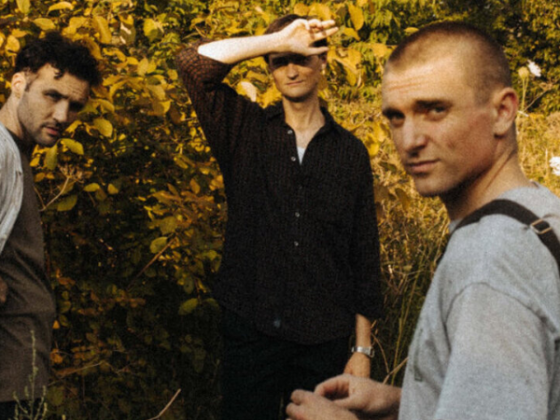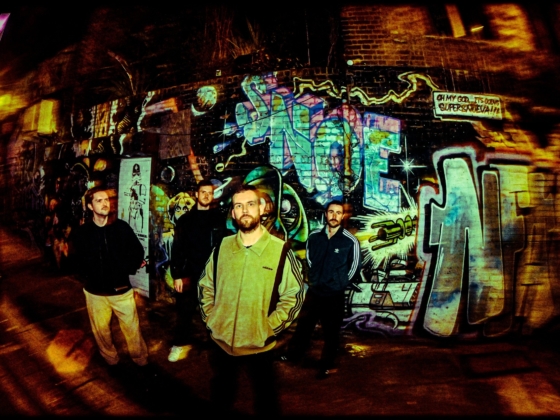The Mars Volta is rejoining the ranks, with their newest album Noctourniquet set to take to the air March 26. They were inspired by childrens' nursery rhymes, Greek mythology, and Solomon Grundy. Noctourniquet is meant to be an experimental album, drawing upon the three previously said influences. For those who are strangers to The Mars Volta's music, they are a progressive, hard rock American band. With a quick listen to any of their songs, you would immediately classify them as metal, but I would not dare to lump them into just that category. They dip in and out of many types of music and draw from various influences, which makes it quite difficult to place a confident label on them.
Noctourniquet definitely does not make labeling easier. Just like any TMV album, it is jam packed to the brim with experiments, though this time, it is slightly more modest. Don't get me wrong, they still use obscure chords, non-traditional singing structures, unorthodox beats, and tempos. The one outstanding characteristic I noticed in my first play through the album was that they incorporate more effects and distortions, whereas a majority of their past work relied on the heaviness and their unique style.
The first album of the track, "The Whip Hand," sets the tone of the entirety of the album, as well as foreshadowing the techniques and style that emerge in the following songs. With a healthy dose of heavy riffs, effects, falsettos, and quick and technical drumming, "The Whip Hand" sets a fast standard among the other songs in Noctourniquet. Little did I know, this was a reoccurring trend.
"Aegis" follows with a haunting, distorted, low-key guitar, with an impending doom beat laced through the duration. The doom is eventually met with an explosion of crashes from the drum rides and heavy guitaring.
The next track that really caught my attention is "Lapochka." It has an usually melancholic tone, in contradiction to the fast, flawless drum beat. The haunting "Woooohh oh woooo ooohh ooooh oohh oh" in the chorus does not fail to drastically change your current mood. With a surprising amount of effects and distortions, they still are able to maintain what TMV is all about.
Noctourniquet bows out with the powerful "Zed and Two Naughts." In my opinion, this last track of the album sums up the overarching mood, tone, image, symbolism, and what have you, in regards to the journey you went through to reach the track in the first place. The reason I think this track is the epitome of Noctourniquet is because it encapsulates all the elements of the other tracks into one giant, epic crusade of a song that balances each elements to a near, audio equilibrium. I won't go into my usual break down of this particular song, you'll just have to listen for yourself.
The Mars Volta – Noctourniquet (out March 26)












